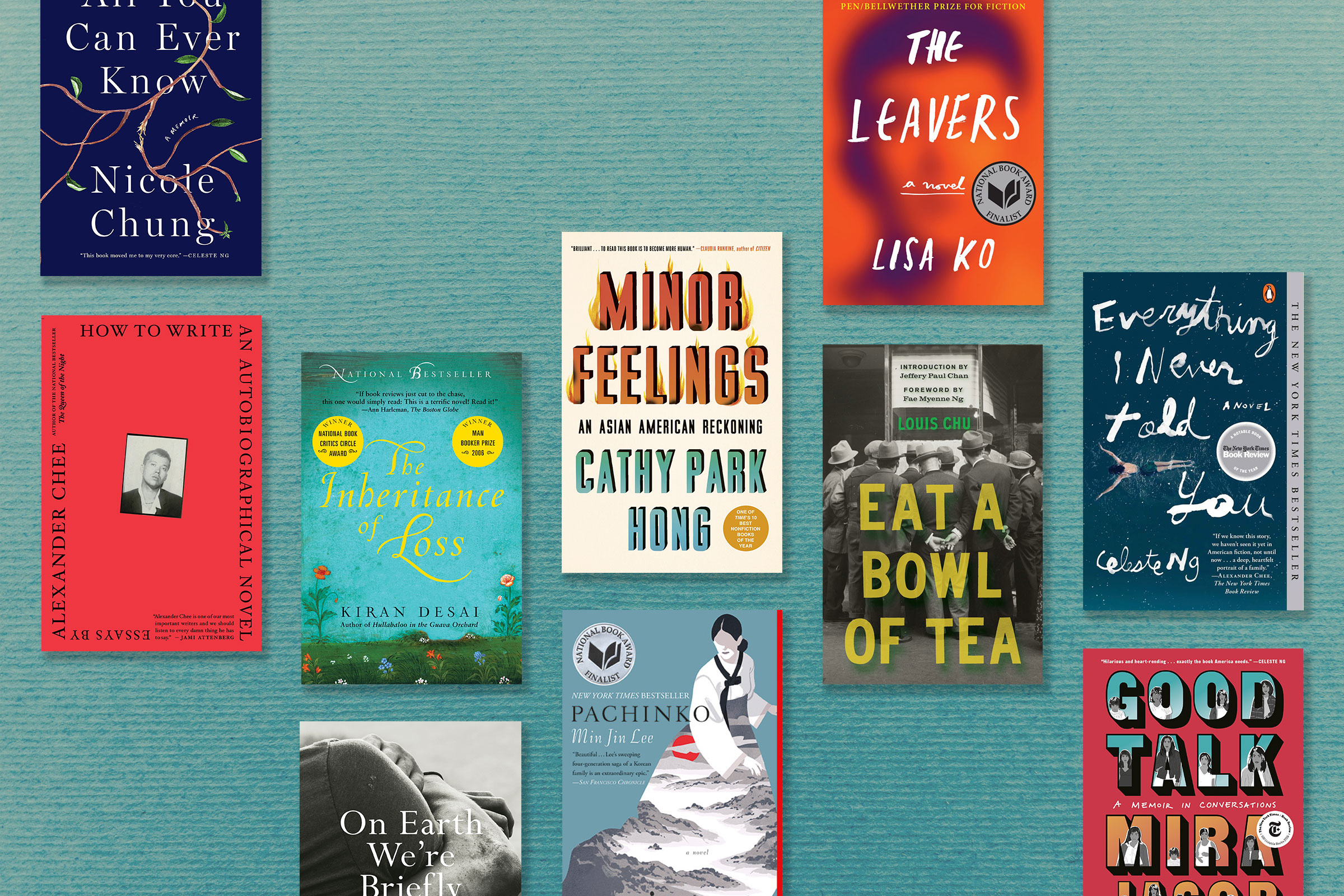
It might seem trite to say that in times of despair, we can look to the written word for solace. The shootings in Atlanta on March 16, in which a white gunman killed eight people, six of whom were Asian women, has sent waves of grief through the Asian American community and through global East and South East Asian communities. How can the written word even start to convey the pain caused by decades of racism and discrimination, a pain that has felt more acute as attacks targeting Asian people increased over the past year?
The merits, pitfalls and purposes of the “anti-racist reading list”—and whom such lists are written by and for—have been hotly debated. As author Lisa Ko tweeted on March 19, “white supremacy is not going to be dismantled through diverse reading lists.” The last year, particularly following the summer’s widespread Black Lives Matter protests, prompted a rush to compile lists of books written by Black authors and authors of color, intended to service white audiences in the name of antiracism. Such efforts can take away the inherent pleasure of reading and enjoying literature, the author Yaa Gyasi argued in a March 20 piece for The Guardian: “So many of the writers of colour that I know have had white people treat their work as though it were a kind of medicine. Something they have to swallow in order to improve their condition, but they don’t really want it, they don’t really enjoy it, and if they’re being totally honest, they don’t actually even take the medicine half the time. They just buy it and leave it on the shelf. What pleasure, what deepening, could there be in “reading” like that? To enter the world of fiction with such a tainted mission is to doom the novel or short story to fail you on its most essential levels.”
In putting together our own reading list at TIME, we asked ourselves what audience we really wanted to serve—and the answer was clear: each other. In the curation below, Asian staffers in TIME’s newsroom share the books that have brought them hope, comfort and joy. (For readers looking to purchase them, check out audiobook service Libro.fm‘s list of AAPI-owned bookstores.) This list is not intended to educate, but to celebrate. To celebrate the richness, the diversity and the joy of stories by our community, for our community, and curated by our community. The books below resonated with each of us—and we hope they might make you feel, in some way, seen as well.
The Best We Could Do: An Illustrated Memoir, Thi Bui
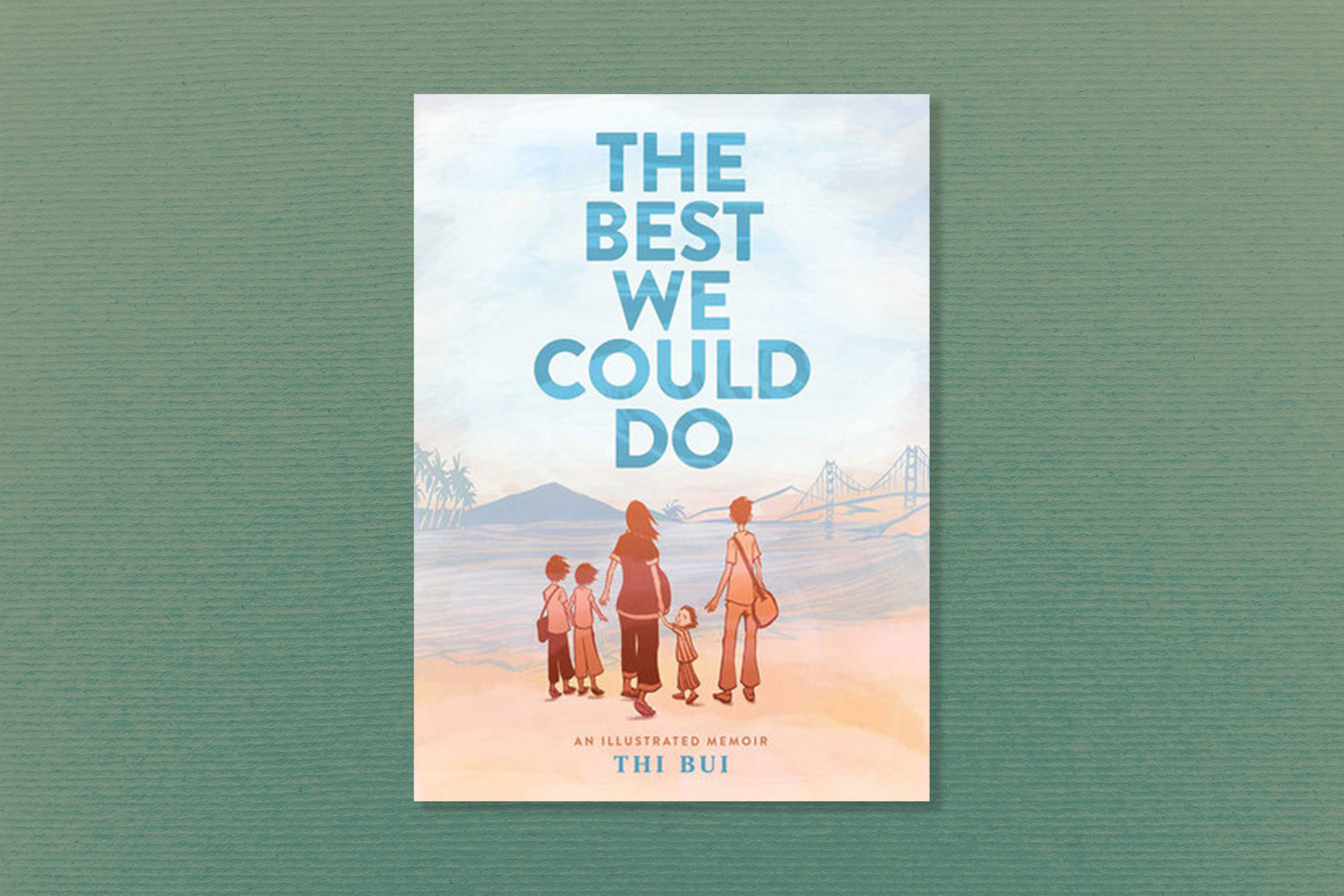
The Best We Could Do is a true story of a family forced to leave their home to find a new life. In this graphic novel, author Thi Bui tells her personal and familial story set before, during and after the Vietnam war. She illustrates how her family escaped the fall of South Vietnam in the 1970s and the challenges they faced living in America. In sharing the stories of her parents, grandparents and herself, Bui opens up the history of Vietnam. And through illustrations she elegantly portrays the struggles of assimilation and the heartbreak her family endured when they were forced to leave behind everything they knew. The memoir is a detailed family history and an accurate representation of Vietnamese people during the Vietnam war and the realities of finding a better life and a new land. — Karena Phan
Buy Now: The Best We Could Do on Bookshop | Amazon
Days of Distraction, Alexandra Chang
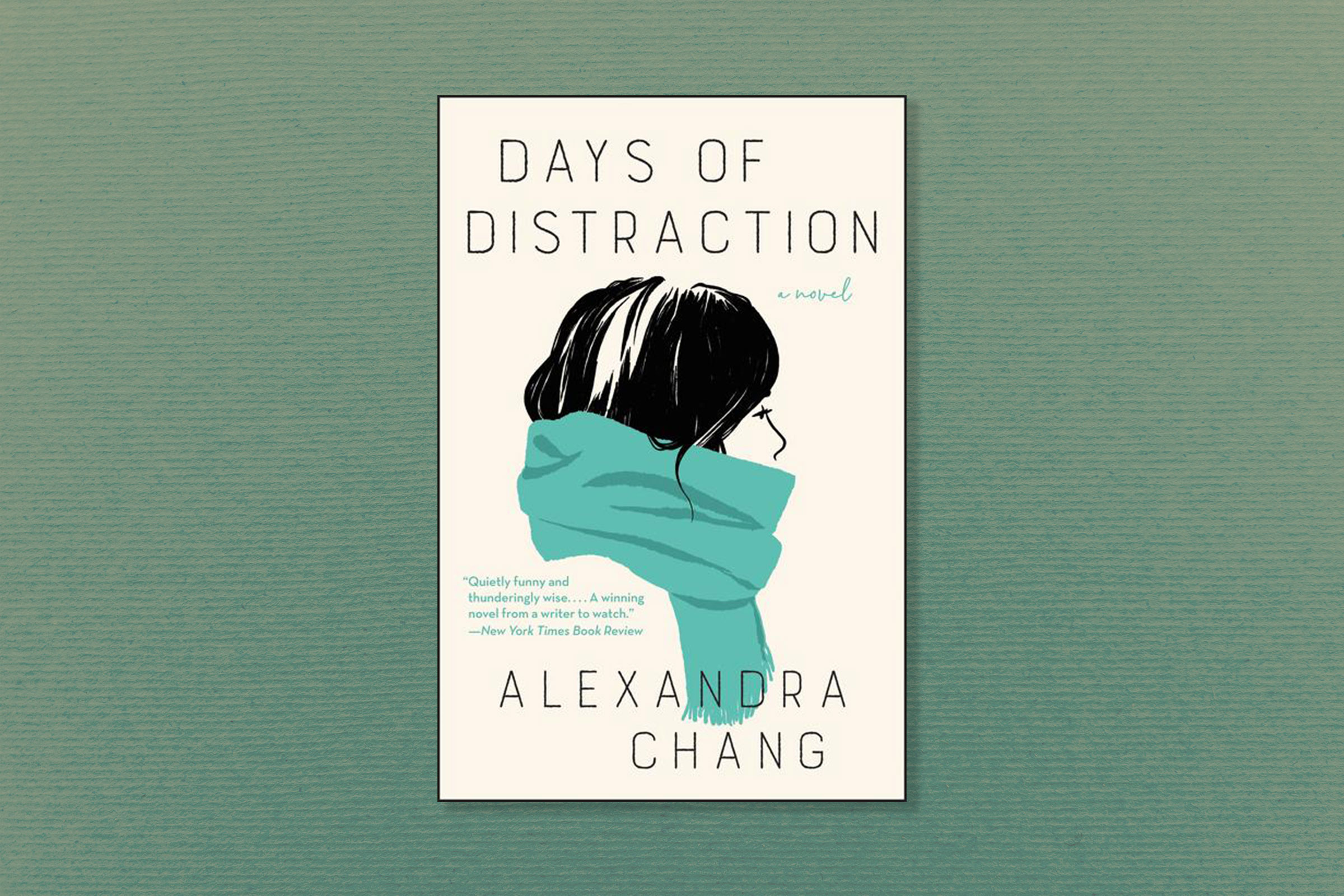
“It is difficult to parse which parts of me come from my family, from being Chinese, from being Asian American, from being American, from being a woman, from being of a certain generation, and from, simply, being,” thinks the 24-year-old narrator of Days of Distraction. She’s a writer at a prestigious tech magazine in Silicon Valley, who follows her longtime boyfriend, J, to a quiet town in upstate New York. Along the way, she starts to question what it means to be in an interracial relationship, delving into the history of Asian Americans and her own family history. I loved Alexandra Chang’s debut novel, which came out in March 2020. In funny, tender and thought-provoking vignettes and fragments, Chang articulates many aspects of office politics, racism, misogyny, love and identity in an insightful way. As an Asian journalist who has been in many similar environments to ones in the novel, her words deeply resonated with me. — Naina Bajekal
Buy Now: Days of Distraction on Bookshop | Amazon
Wild Swans, Jung Chang
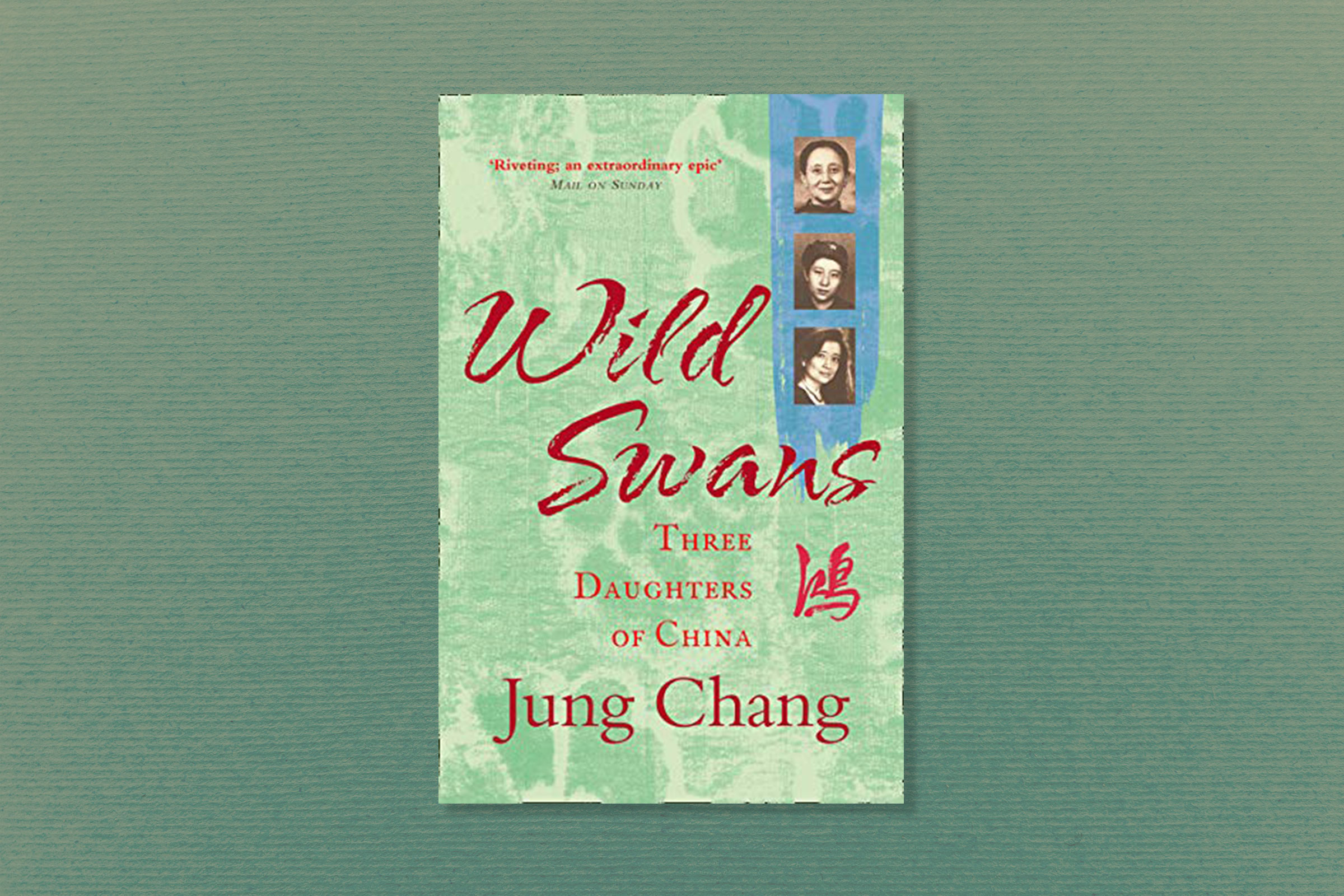
“It is my conscious decision to write about characters and people whose private personal lives are intimately connected with the politics and history of the country,” historian and writer Jung Chang told TIME in 2019, speaking about her book Big Sister, Little Sister, Red Sister: Three Women at the Heart of Twentieth-Century China. This approach to the history of China started with Chang’s epic autobiography Wild Swans, published in 1991 to international acclaim. Weaving together family history, including the experiences of her grandmother, her mother and her own story against the backdrop of 20th century China, Chang portrayed the experiences of women’s lives in a nuanced, deeply personal, yet accessible way. “I did not appreciate that information about China was not easily available, or was largely misunderstood, in the West,” writes Chang, reflecting on her time as a young woman in the early 1970s. Reading Wild Swans and Chang’s subsequent work goes a long way toward changing that. — Suyin Haynes
Buy Now: Wild Swans on Bookshop | Amazon
How to Write an Autobiographical Novel, Alexander Chee
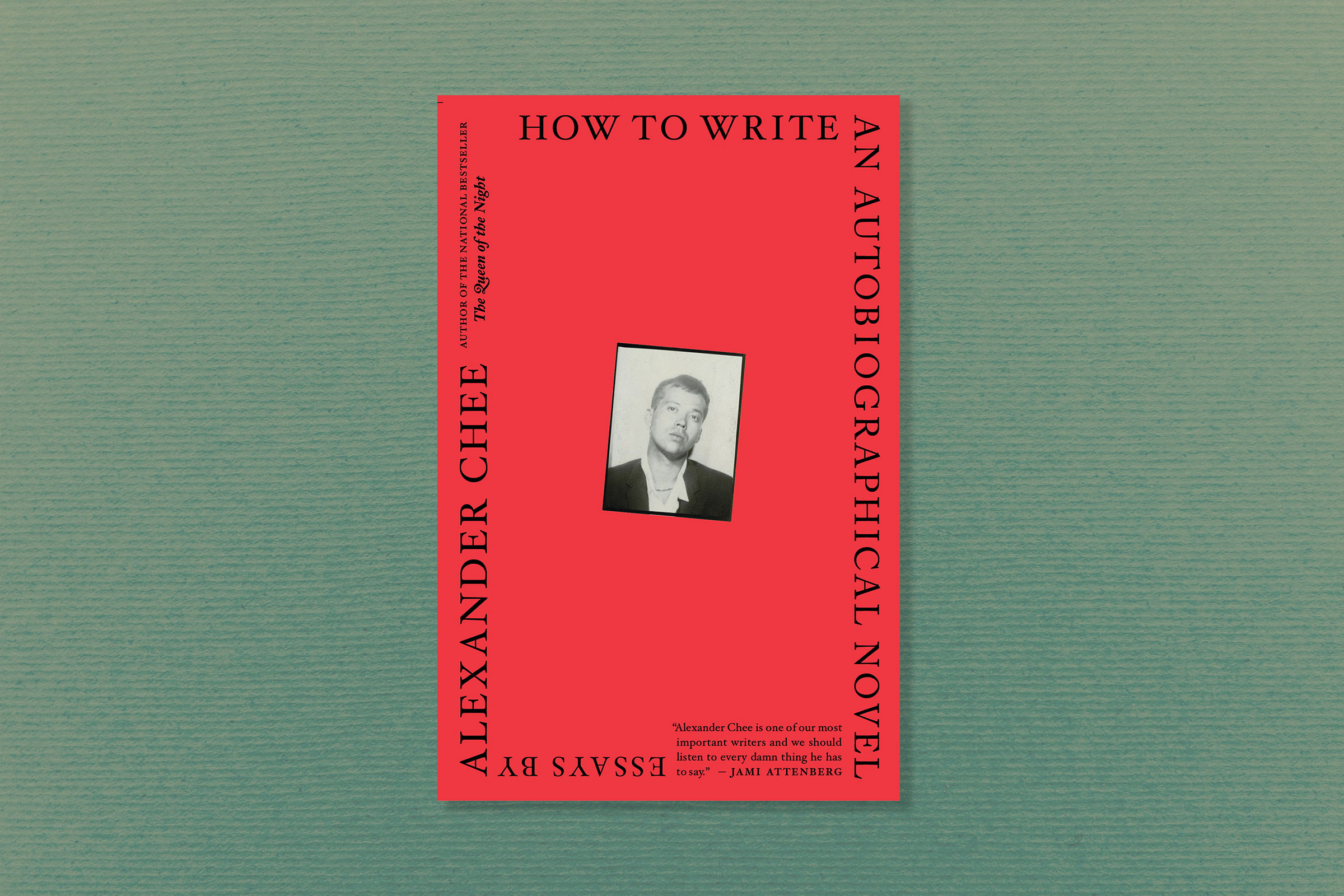
In this powerful collection of essays, Alexander Chee charts many of his formative life experiences, from his father’s death to the 2016 presidential election to his activism during the height of the AIDS epidemic. Through 16 pieces, Chee examines his multiple identities as a Korean American, gay man, lover and writer, posing urgent questions along the way about the space between life and art. In these pieces, he weaves the threads of his personal history and his coming of age as a writer. I remember reading this before taking a creative writing workshop and feeling more energized than ever by reading the advice that Chee recalls a professor giving to him. “Yes, everything’s been written, but also, the thing you want to write, before you wrote it, was impossible to write. Otherwise it would already exist. Your writing makes it possible.” — Naina Bajekal
Buy Now: How to Write an Autobiographical Novel on Bookshop | Amazon
We Are Not Free, Traci Chee
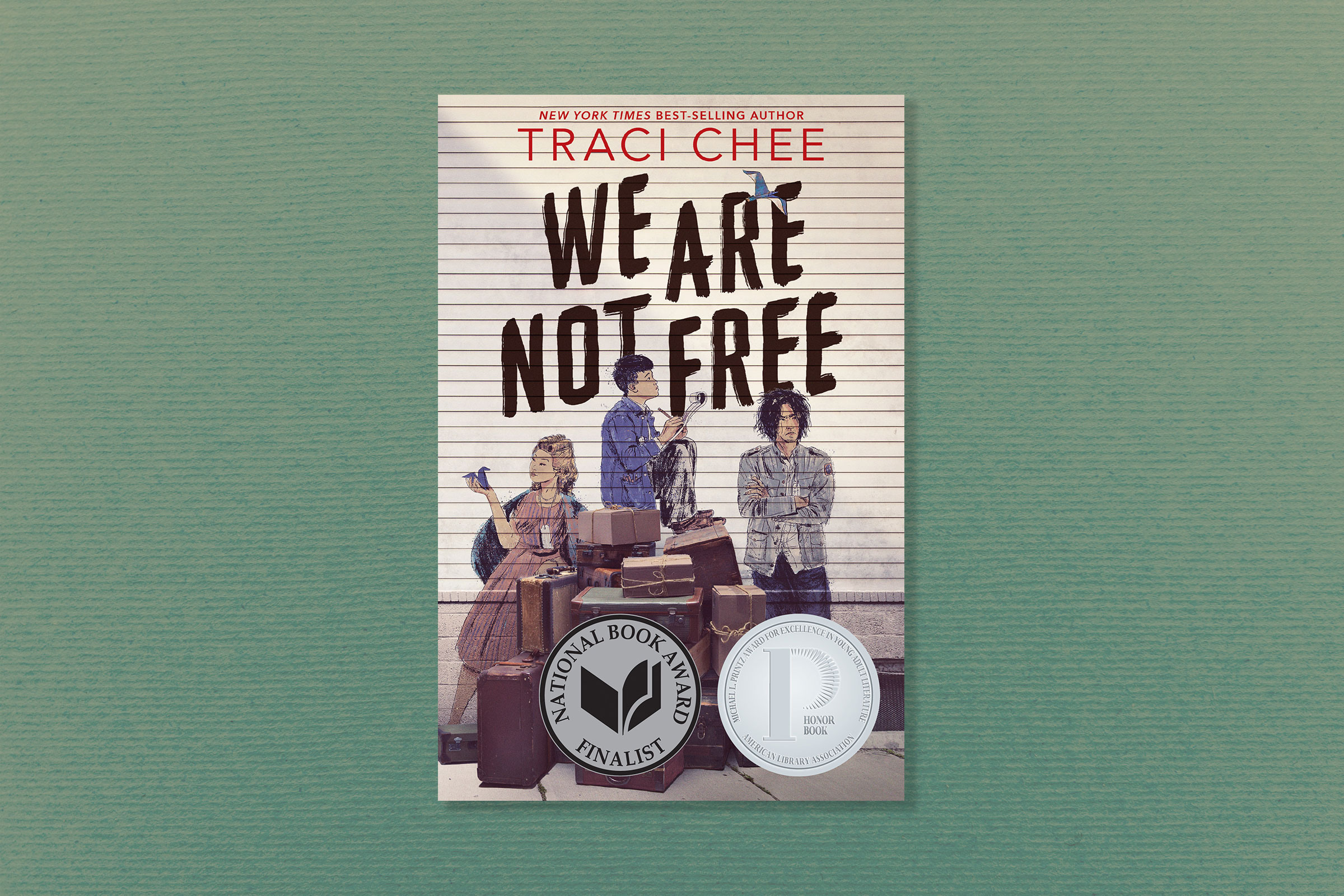
We Are Not Free follows a group of 14 second-generation Japanese American teens in 1942, whose lives are upended after the bombing of Pearl Harbor in 1941. Forced to leave their homes in San Francisco and live in incarceration camps, each teen experiences a range of challenges, from dislocation to discrimination. Author Traci Chee gives each character a distinct voice and uses different formats to share their stories and perspectives, including verse, letters and first-person narratives. Chee crafts a transformative story about teens facing incredible adversity during a tragic point in American history. —Karena Phan
Buy Now: We Are Not Free on Bookshop | Amazon
Eat a Bowl of Tea, Louis Chu
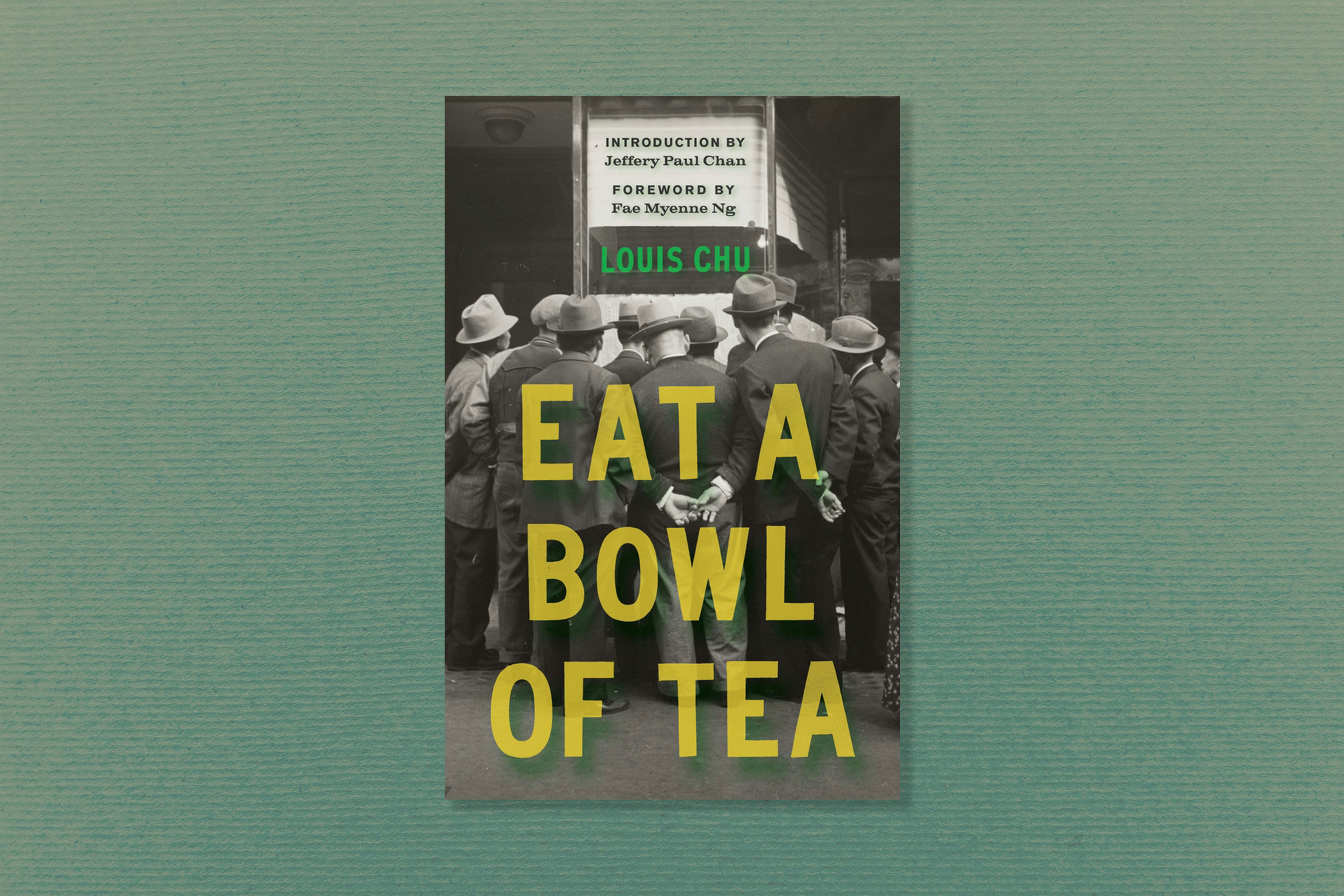
Arguably the first Chinese American novel to receive widespread publication, Louis Chu’s Eat a Bowl of Tea takes an unflinching dive into Manhattan’s Chinatown in the 1940s, where the rigid societal structures of the old world clashed with 20th century dreams and desires. Chu has no qualms in grappling with the community’s misogyny, violence and shame, while painting vivid scenes of communal joy and support. The book’s honesty and brutality made it shocking to many readers when it was published in 1961; it is now central to Asian American history and studies. — Andrew R. Chow
Buy Now: Eat a Bowl of Tea on Bookshop | Amazon
All You Can Ever Know, Nicole Chung
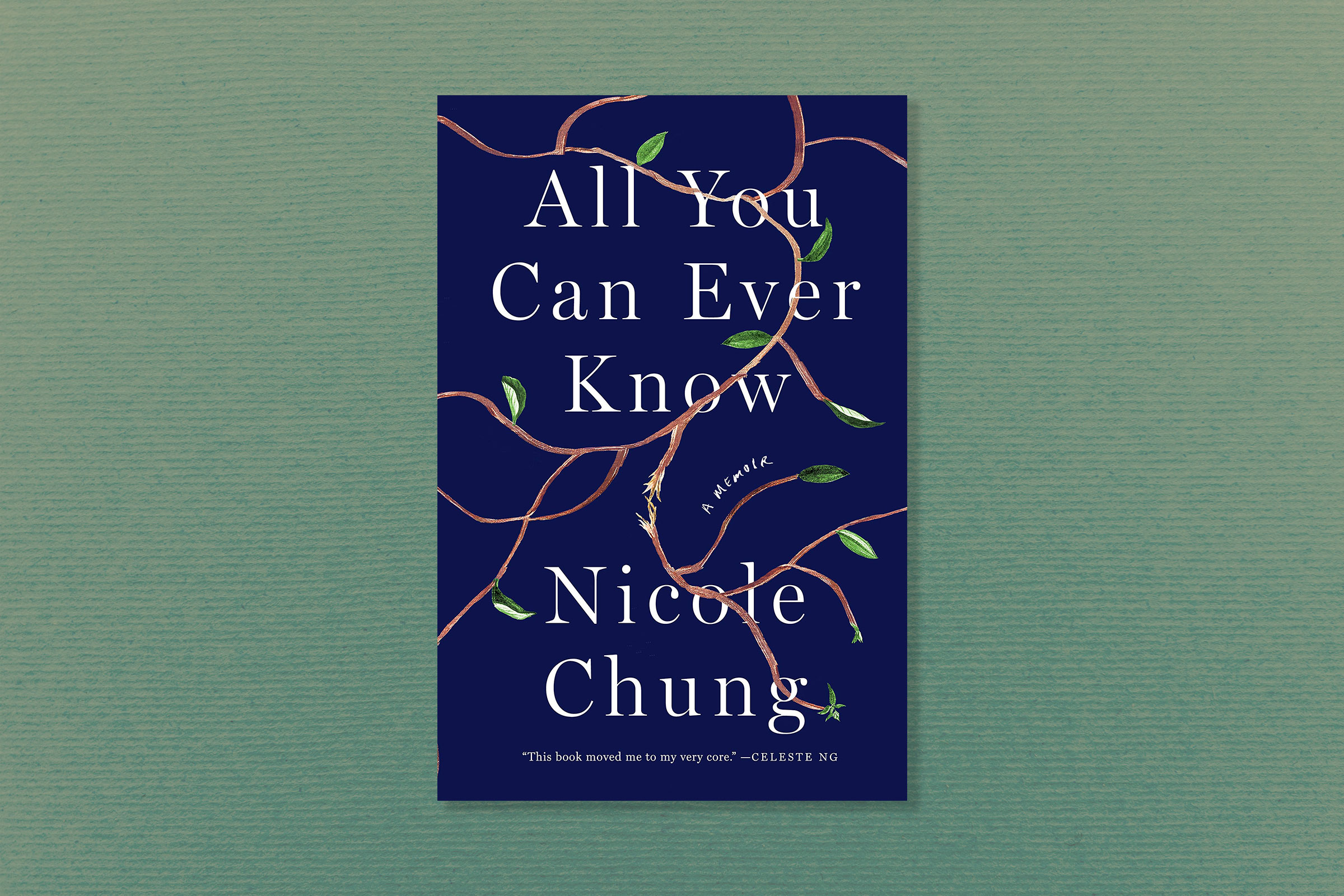
As she prepares to become a mother herself, author Nicole Chung searches for answers about her biological parents in her debut memoir. Growing up in Oregon, Chung’s mother, who was white, always told her a comforting tale about her adoption: “Your birth parents had just moved here from Korea. They thought they wouldn’t be able to give you the life you deserved.”
I was deeply moved by Chung’s stories of growing up in a mostly white, “colorblind” society. “To be a hero, I thought, you had to be beautiful and adored. To be beautiful and adored, you had to be white,” she writes. While I’m not an adoptee and will never know the experience of not being seen fully by your own family, this memoir is such an urgent meditation on race, motherhood and the search for identity that I have gone back to it countless times for comfort. — Naina Bajekal
Buy Now: All You Can Ever Know on Bookshop | Amazon
The Inheritance of Loss, Kiran Desai
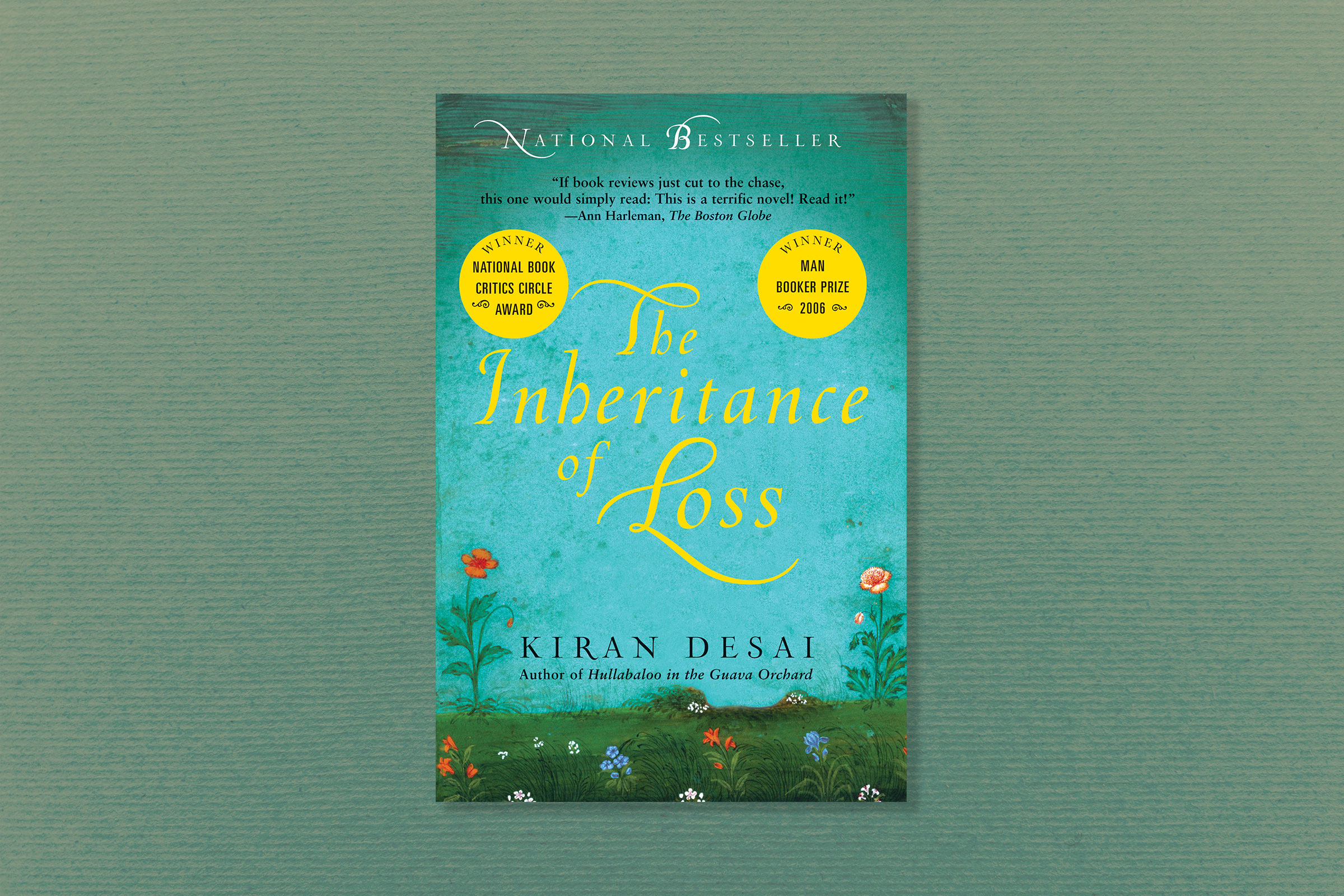
When I was 13 years old, I read Kiran Desai’s extraordinary novel, The Inheritance of Loss. Every time I’ve read it since, I find more to love in the prose, which is gorgeous from the very first sentence: “The colors had been those of dusk, mist moving like a water creature across the great flanks of mountains.” The novel follows Sai, an orphaned teenager living with her Anglophile grandfather in a crumbling house on the Indian side of the Himalayas; in a parallel narrative, we see Biju, the son of Sai’s grandfather’s cook, who drifts from one New York restaurant to another, trying to make a life for himself but ground down by the reality of being an “illegal” immigrant, “a dirty little rodent secret” that only other Indians living abroad could understand.
“Certain moves made long ago had produced all of them,” Desai writes, deftly weaving together India’s colonial history with the 21st-century issues of globalization, terrorism and inequality. As the daughter of Indian immigrants who moved to Britain full of optimism, as the granddaughter and great-granddaughter of men and women who marched for India’s independence and went to prison for the cause, I have always found this extraordinary novel to be one of the best at capturing the ways in which modern multiculturalism has fallen short of its promises. — Naina Bajekal
Buy Now: The Inheritance of Loss on Bookshop | Amazon
Minor Feelings, Cathy Park Hong
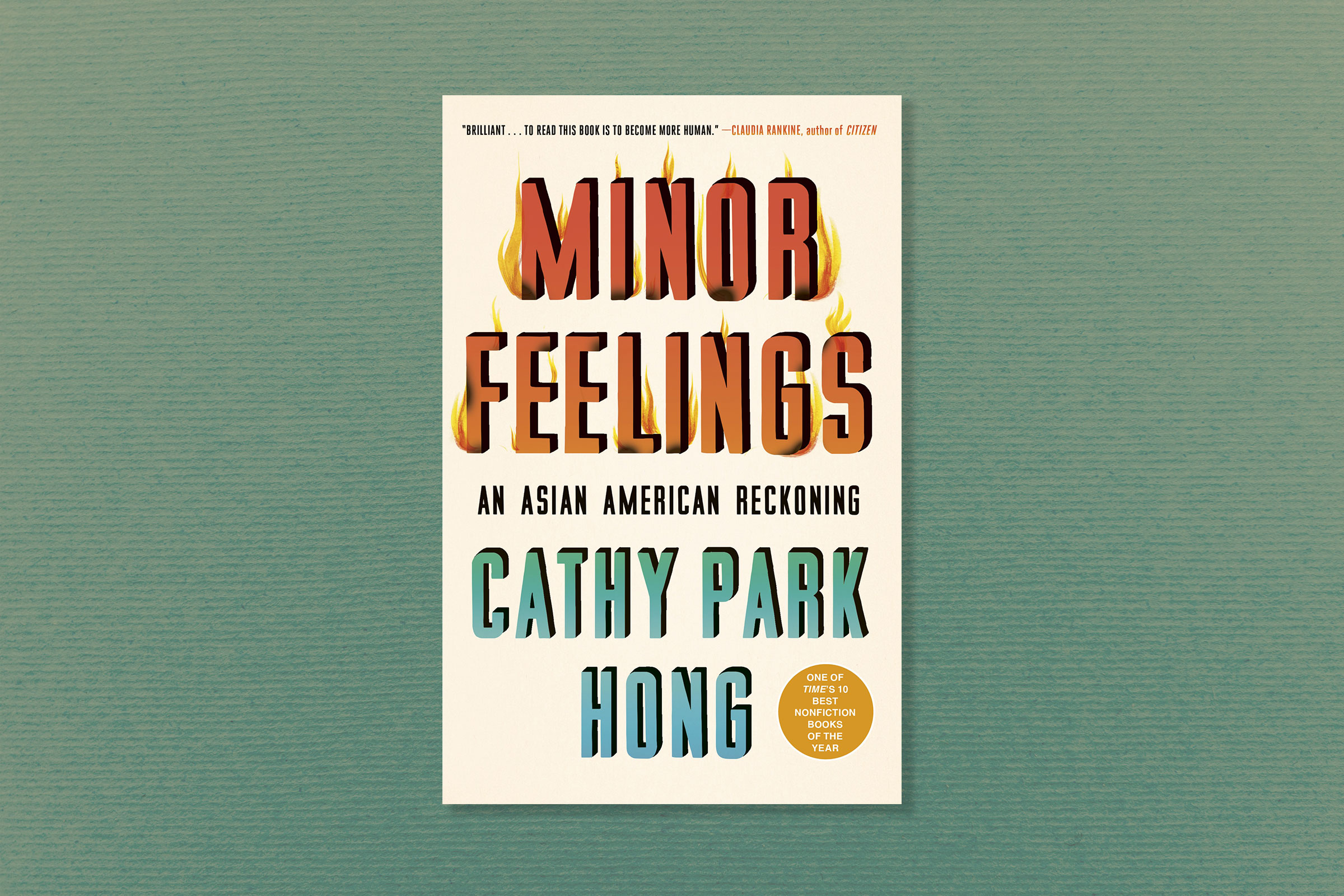
Cathy Park Hong’s Minor Feelings is the most honest and apt exploration of Asian American identity I’ve ever read. This prescient collection of essays, published in early 2020 just before a year of unprecedented anti-Asian violence due to the pandemic, finds its immeasurable strength in the subtleties, struggles and occasional triumphs of a community living at the margins of a society, largely unacknowledged and left out of a national dialogue about race. Running the gamut from unpacking the shame she felt growing up as the daughter of Korean immigrants to deconstructing her identification with the uncomfortable, caustic comedy of Richard Pryor, Hong’s essays are at once candid, complex and gutting. They demand to be seen in the full range of her humanity as an Asian American woman and writer. — Cady Lang
Buy Now: Minor Feelings on Bookshop | Amazon
Good Talk, Mira Jacob
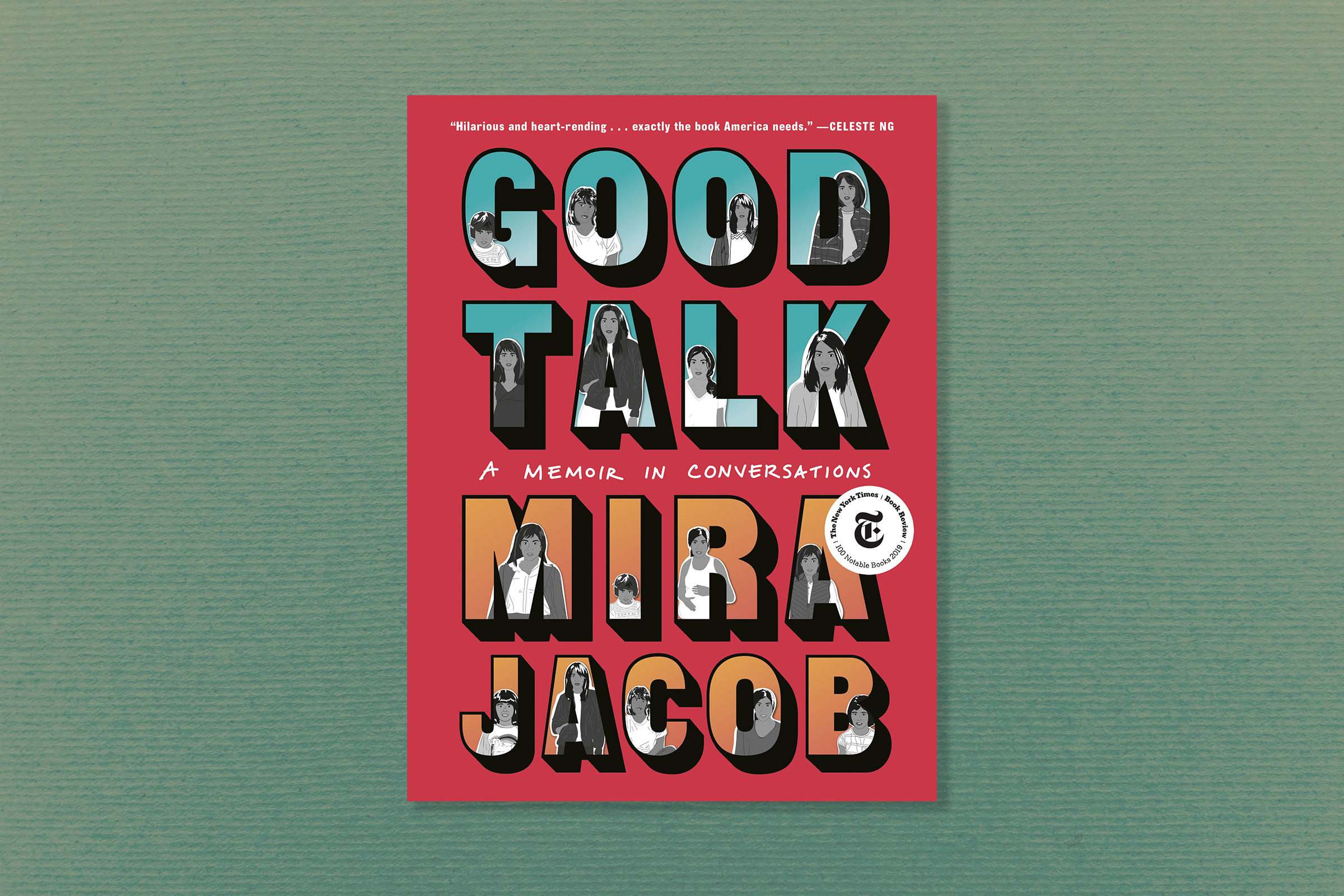
In Mira Jacob’s graphic memoir Good Talk, tough questions are the catalysts for necessary discussions. Framed through the innocent yet poignant queries of her 6-year-old half-Jewish, half-Indian son ahead of the 2016 presidential election, Jacob seeks to find thoughtful but truthful answers to questions like, “Are white people afraid of brown people?” by revisiting her lived experiences. Using both humor and grace, Jacob considers the dialogues in her life that have shaped how she views the world—and the America we live in— from coming of age as one of the few students of color and one of the only South Asian students in her New Mexico high school to reckoning with her white in-laws’ support of Donald Trump. The conversations aren’t always easy, but Jacob approaches each with nuance and fierce compassion—making the case that good talk is an essential part of not only learning, but healing. — Cady Lang
Buy Now: Good Talk on Bookshop | Amazon
The Leavers, Lisa Ko
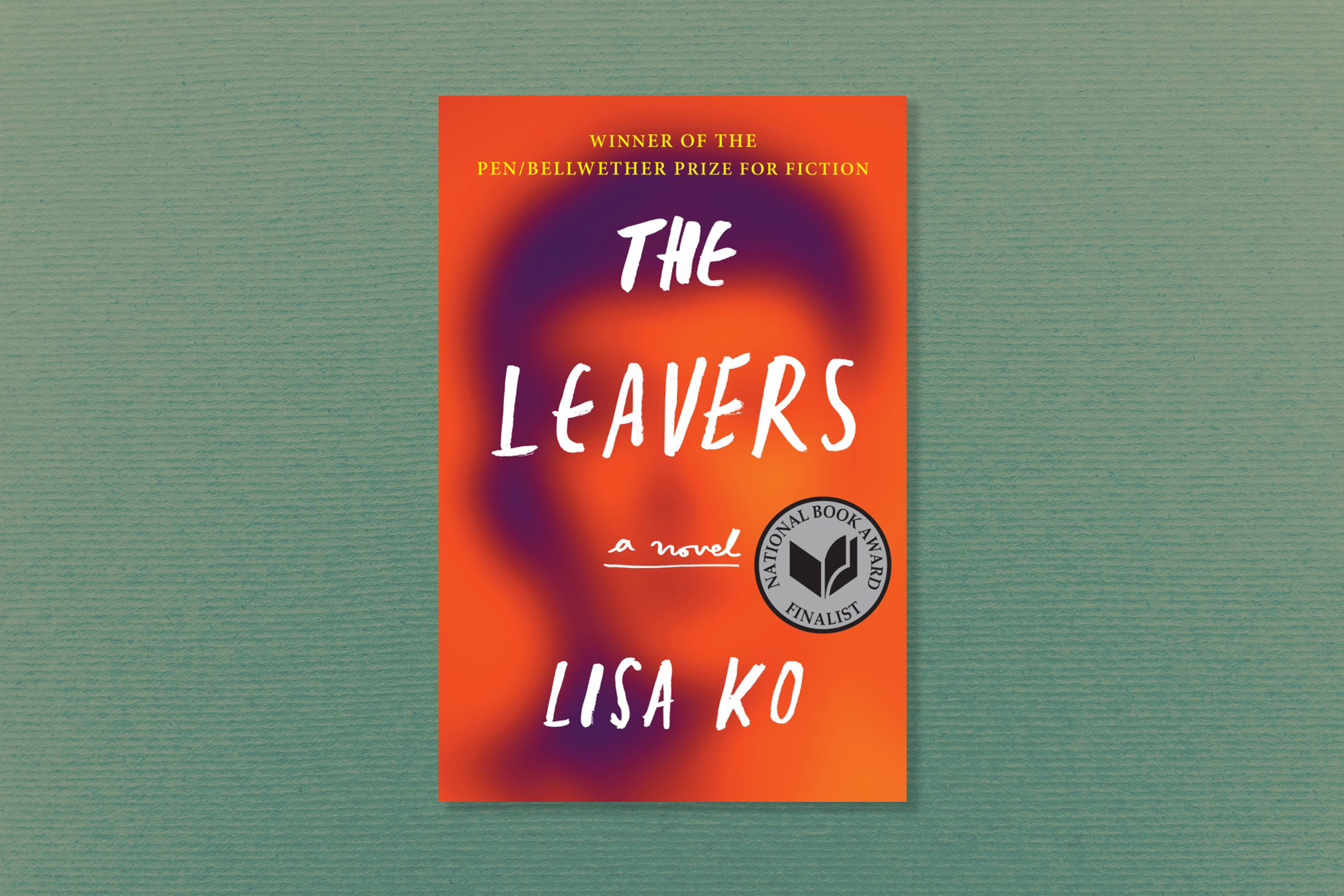
In the summer of 2018, my mum and I met up for a holiday to visit our family in Malaysia—she traveled from the U.K. and I traveled from Hong Kong, where I was living and working for this magazine. We called it our “girls road trip,” starting in her hometown in Penang, before traveling down the peninsula to Melaka, and then back up meeting our cousins in Ipoh. We swapped books to keep ourselves entertained during the long bus journeys, one of which was Lisa Ko’s The Leavers. The story is told through the perspectives of Polly, an undocumented Chinese immigrant mother working in a nail salon in the Bronx, and her son Deming, who is abandoned and later adopted by a white couple and renamed to become Daniel Wilkinson. Set in both China and New York, it’s a tale about displacement, migration and belonging, and also the bonds between mother and child. The memories of reading it after my mum suggested it, while traveling through her home country together, will stay with me for a long time. — Suyin Haynes
Buy Now: The Leavers on Bookshop | Amazon
Pachinko, Min Jin Lee
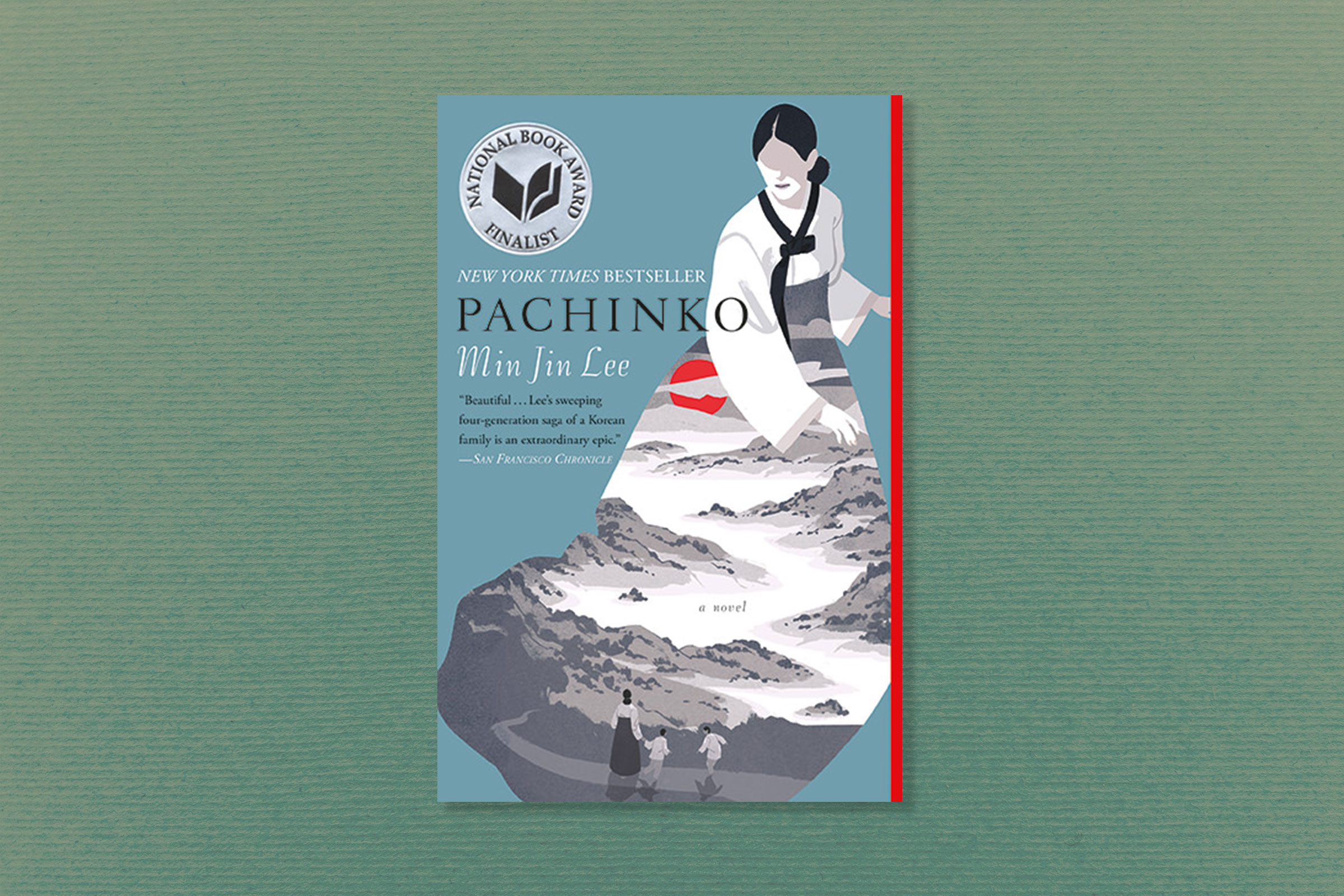
An epic in every sense of the word, Min Jin Lee’s novel Pachinko sprawls over nearly a century, tracing both the larger sociopolitical history of the Korean peninsula as well as the extremely specific trials and tribulations of one family across four generations. At the center of the story is Sunja Baek, a kimchi vendor who stoically absorbs the suffering of everyone around her as she perseveres through the decades. The book is fittingly being adapted into a TV series. — Andrew R. Chow
Buy Now: Pachinko on Bookshop | Amazon
Kim Jiyoung, Born 1982, Cho Nam-Joo
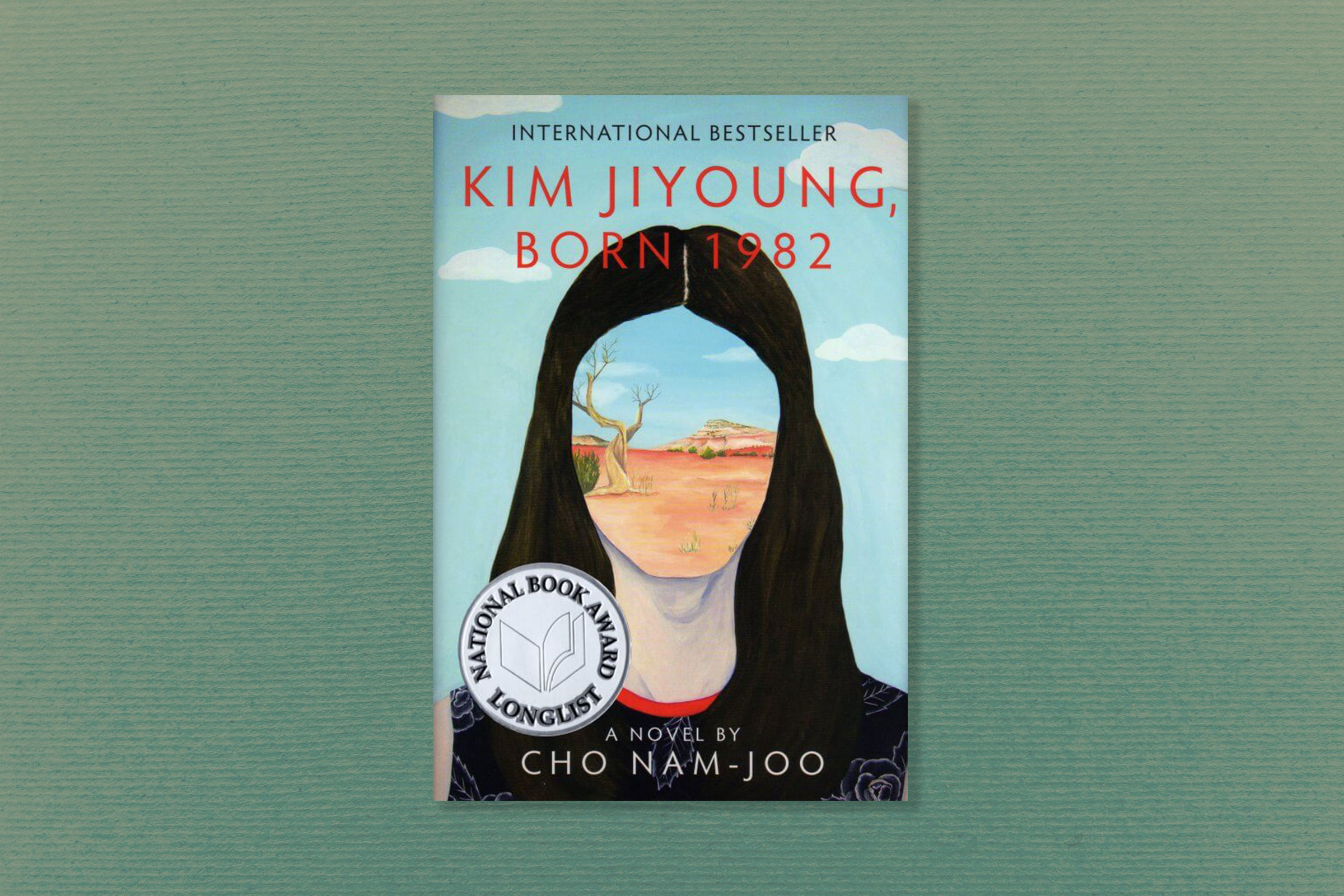
Kim Jiyoung, Born 1982 starts with a list of facts about the lead character, Kim Jiyoung, and the apparently normal elements of her apparently normal life. Yet turn the page, and discover that all is not well. Kim Jiyoung is exhibiting “abnormal behaviour.” Author Cho Nam-Joo never lets the reader forget that everything in the novel is grounded in reality, closely following Jiyoung’s life, thoughts and reactions, and including reminders there are many Korean women in similar circumstances. While the cultural context is specific to Korea, the specter of structural sexism resonates for every woman worldwide—women who are forced to adhere to the rules, forced to smart silently at the catcalls and forced to sacrifice their careers at the behest of men’s wishes. As I read this short, subtly furious novel, so many elements of Jiyoung’s experiences rang true. I appreciated Cho’s masterful demonstration of Jacqueline Woodson’s phrase: “The more specific the story, the more universal it becomes.” — Suyin Haynes
Buy Now: Kim Jiyoung, Born 1982 on Bookshop | Amazon
Know My Name, Chanel Miller

For years, we knew Chanel Miller as Emily Doe, the woman who was sexually assaulted on Stanford’s campus in 2015. We were introduced to her powerful voice in 2016 when her victim impact statement letter was made public—a piece of writing that stunned the world, and was even read on the Congress floor. In her memoir, Miller drops her shield of anonymity not only to reclaim her identity, but to introduce the world to who she is as an artist and writer. Miller captures her experiences leading up to and after the assault, and does so in remarkably harrowing, but clear terms. In doing so, she creates a bold and transformative text about survival, grief and resilience.
Buy Now: Know My Name on Bookshop | Amazon
Everything I Never Told You, Celeste Ng
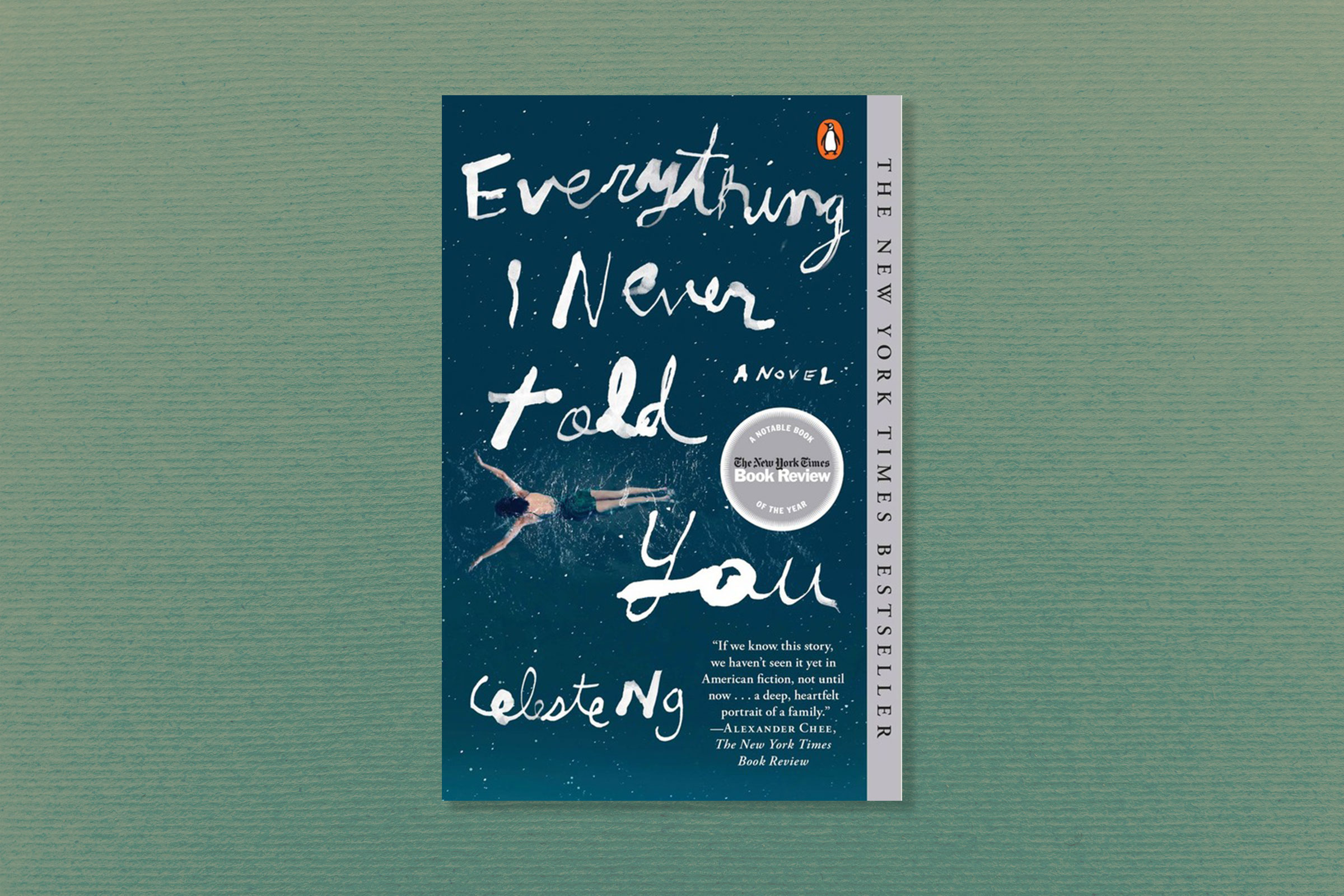
The year is 1977, and Lydia Lee, the eldest daughter of a Chinese American family in small-town Ohio, is dead at the bottom of the local lake. Everything I Never Told You initially appears to be another thriller about the mysterious death of a teenage girl—but the novel, Celeste Ng’s debut, reveals itself to be much more. Starting at the end of 16-year-old Lydia Lee’s life, Ng slowly unveils a teenager buckling under the weight of trying to fulfill the dreams her parents were unable to pursue. Her mother Marilyn, a white housewife who was unable to finish her degree to become one of few female doctors at the time, pushes her favorite daughter to surpass her own station in life. Lydia’s father, James, a first-generation Chinese American who has always sought acceptance from his all-American peers, places his aspirations of assimilation onto his whitest-looking child. Lydia performs a treacherous balancing act of maintaining a facade of success while in search of her own identity, an experience that is isolating—and all too familiar. Everything I Never Told You is a gut-wrenching window into the struggles of a mixed-race family longing to find their place in a slow-changing America. — Paulina Cachero
Buy Now: Everything I Never Told You on Bookshop | Amazon
The Sympathizer, Viet Thanh Nguyen
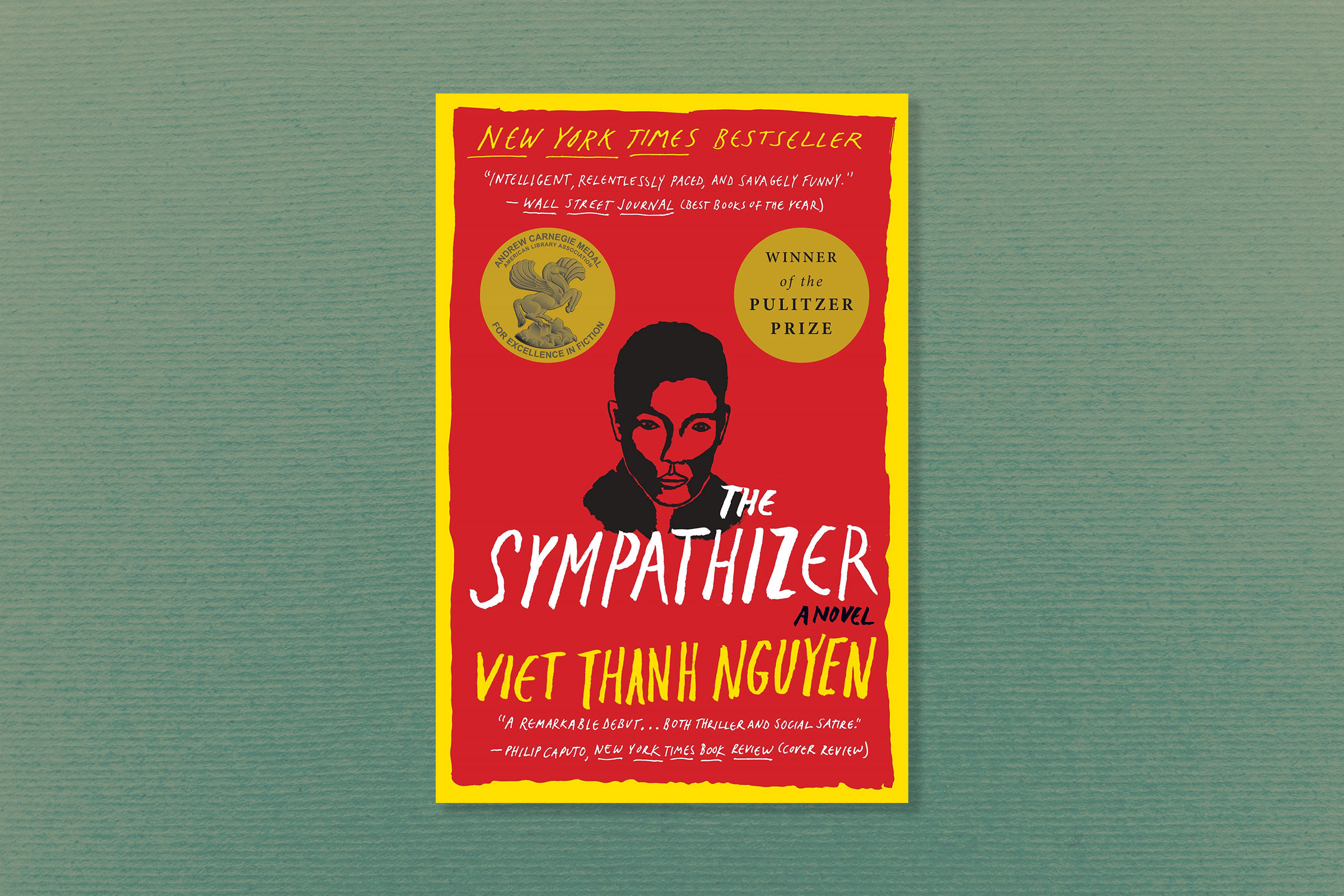
At the center of Viet Thanh Nguyen’s aching debut novel is a nameless communist agent straddling two worlds. He’s the son of a Vietnamese mother and a French father who comes to Los Angeles after the Fall of Saigon. It’s there that the narrator, a thoroughly conflicted man, spies on his fellow Vietnamese refugees. The Sympathizer, which won the 2016 Pulitzer Prize, is written as the spy’s confession and brings with it a fresh perspective on the Vietnam War, one of a person who truly sees and understands both sides. The result is an intricately crafted book that is more than just a gripping spy story as Nguyen captures the many complexities of identity, politics, friendship and love.
Buy Now: The Sympathizer on Bookshop | Amazon
The Garden of Evening Mists, Tan Twan Eng

After reading Malaysian novelist Tan Twan Eng’s moving tribute to his hometown of Penang and the ferry that formerly carried cars from the island to the Malaysian peninsula, I sought out his 2012 novel The Garden of Evening Mists. The novel is told through the perspective of Teoh Yun Ling, traversing the 1940s and her imprisonment in a Japanese civilian internment camp; the early 1950s as Yun Ling becomes an apprentice to a Japanese gardener in the Cameron Highlands district of Malaysia, and the 1980s, as an older Yun Ling retires from a successful career as a judge and reflects on her life and experiences. Famous for its cooler climate and renowned for its natural beauty, Cameron Highlands has been home to vast tea plantations since the 1920s. Reading this novel when I’ve been mostly indoors in the same environment for more than a year, I was moved deeply by the graceful, elegant prose. Tan’s absorbing, rich depictions of both vast landscapes and intricate details transported me to another time and place. — Suyin Haynes
Buy Now: The Garden of Evening Mists on Bookshop | Amazon
Trick Mirror, Jia Tolentino
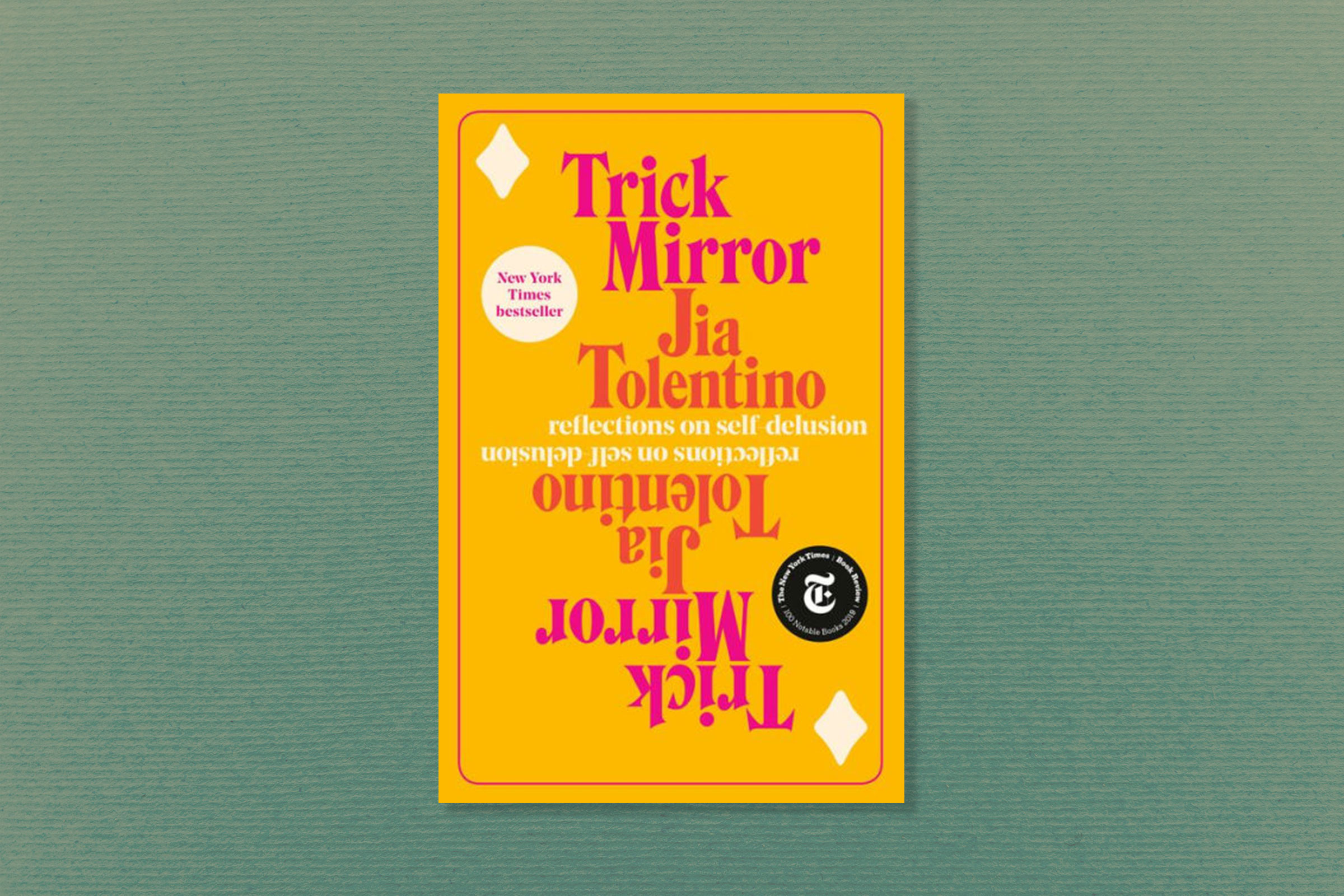
Fueled by reality TV and the internet, entire generations—specifically Gen Z and Millennials—have been raised in an era that centers around the self. In an incisive collection of essays, cultural critic Jia Tolentino unpacks our collective self-delusions about who we are, what motivates us and how we view the world. In her 2019 book Trick Mirror, Tolentino tackles a broad spectrum of cultural frameworks including the internet, late-stage capitalism, religion and the “cult of the difficult woman.” I found Tolentino’s essays on her disillusionment with religious institutions in the South, her criticism of complicity in commodified feminism, and her revelations about experiencing sexual harassment as a woman to be particularly enlightening and validating of my own experiences as a first-generation Asian American from the South. — Paulina Cachero
Buy Now: Trick Mirror on Bookshop | Amazon
Shortcomings, Adrian Tomine
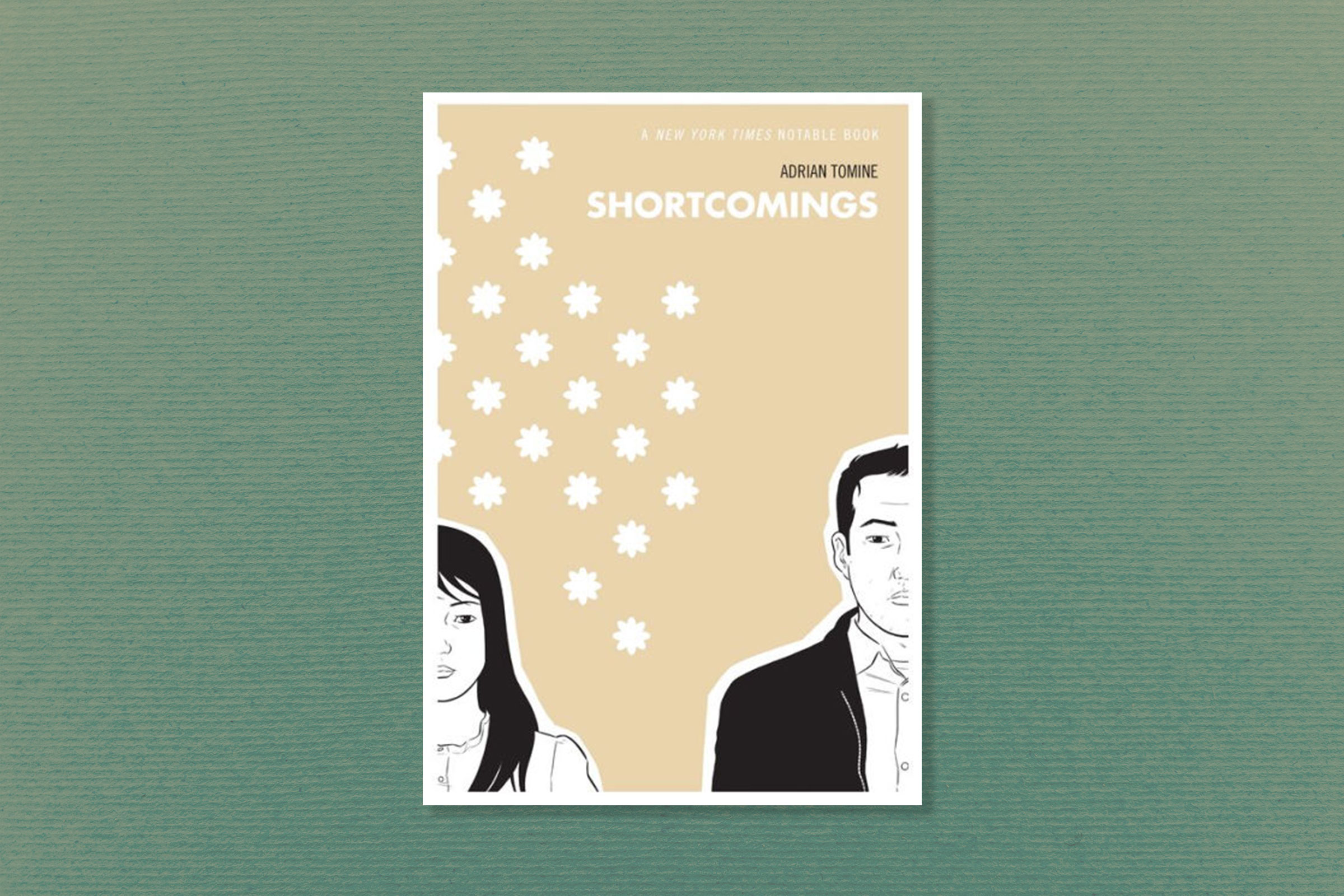
Few books have dealt with racial and sexual politics—and, specifically, Asian American masculinity—as deftly as Adrian Tomine’s Shortcomings, a graphic novel that charts the final days of a relationship from the perspective of its antihero, Ben Tanaka. Ben, a cranky, misanthropic movie theater manager in San Francisco, is obsessed with white women, despite living with his girlfriend Miko, an Asian American activist and film programmer who is increasingly fed up with Ben’s curmudgeonly ways. The dissolution of their romance is not merely personal, but political—a visceral, incisive affront to the long-held mythical belief that love (or perhaps, more accurately, desire) is somehow immune to racism; it’s also a probe into how deeply we may internalize the white gaze. Thanks to Tomine’s wry humor and bracing storytelling, it lays bare the real-life consequences of how a history of racist policies and stereotypes affects how we not only love others, but ourselves. — Cady Lang
Buy Now: Shortcomings on Bookshop | Amazon
On Earth We’re Briefly Gorgeous, Ocean Vuong
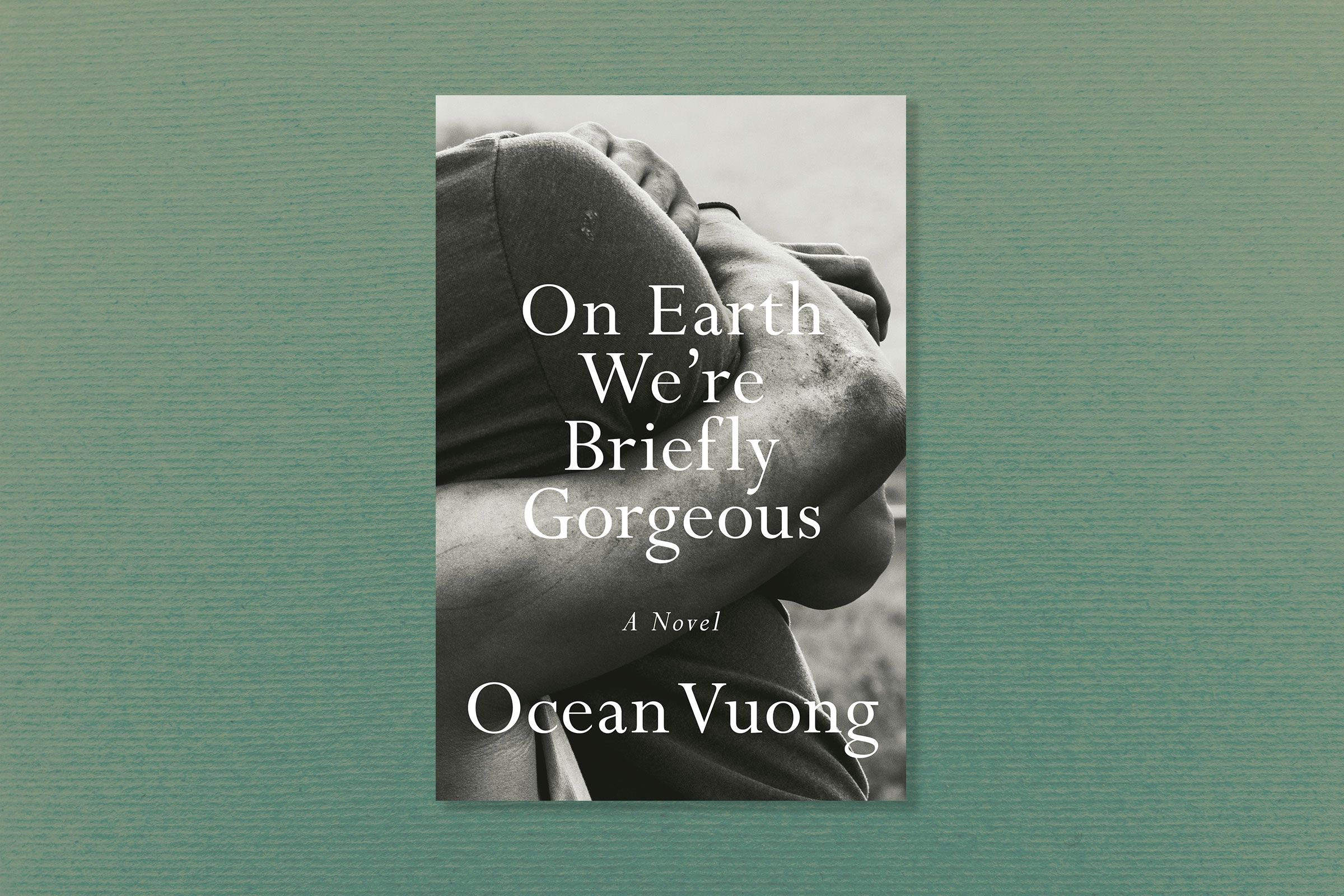
In his semi-autobiographical debut novel, On Earth We’re Briefly Gorgeous, poet Ocean Vuong tells the devastatingly beautiful story of a Vietnamese American boy caught between his family’s painful past surviving the Vietnam War and their struggle to build a new life in America. Written in the form of a love letter to his Vietnamese mother who cannot read, a young man in his late twenties, nicknamed Little Dog, details the experience of his poor immigrant family in Hartford, Conn. in the 1990s. The narrator slowly unearths the trauma his mother and grandmother cannot escape. Vuong’s coming-of-age story is a brutally honest exploration of race, class and identity in America. On Earth We’re Briefly Gorgeous moved me not only with its devastatingly beautiful lyricism, but with its raw and unflinching portrayal of the Asian American immigrant experience: the often selfless sacrifice to provide for one’s family, the widening generational and cultural divide between immigrant parent and first-generation child, and the struggle to fit into a country that views you as a perpetual foreigner. — Paulina Cachero
Buy Now: On Earth We’re Briefly Gorgeous on Bookshop | Amazon
Stargazing, Jen Wang
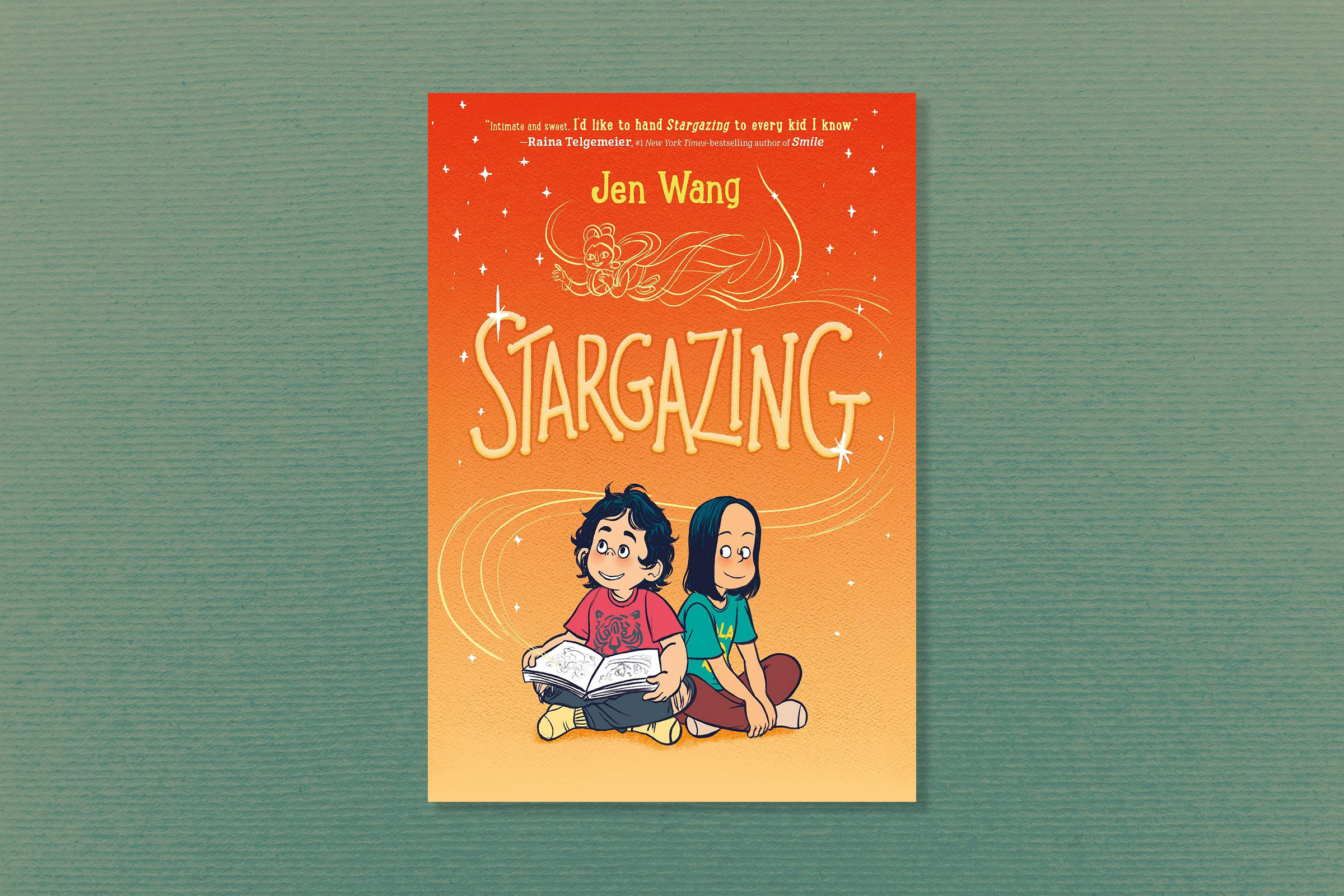
A middle grade graphic novel that follows two unlikely elementary school friends, Stargazing makes it known to readers that Asian Americans are not a monolith. The story follows Christine, a Chinese American girl who’s studious and always trying to meet her parents’ expectations. But the arrival of Moon, another Chinese American girl who moves next door, shakes up Christine’s life. The artistic, outspoken and unabashedly confident Moon seems to be everything Christine isn’t. The two become fast friends. But when Moon is in trouble, can she count on Christine? Wang accurately portrays a tight-knit Asian American community, full of characters that show young readers how minorities don’t have to fit into any box. — Karena Phan
Buy Now: Stargazing on Bookshop | Amazon
Frankly in Love, David Yoon
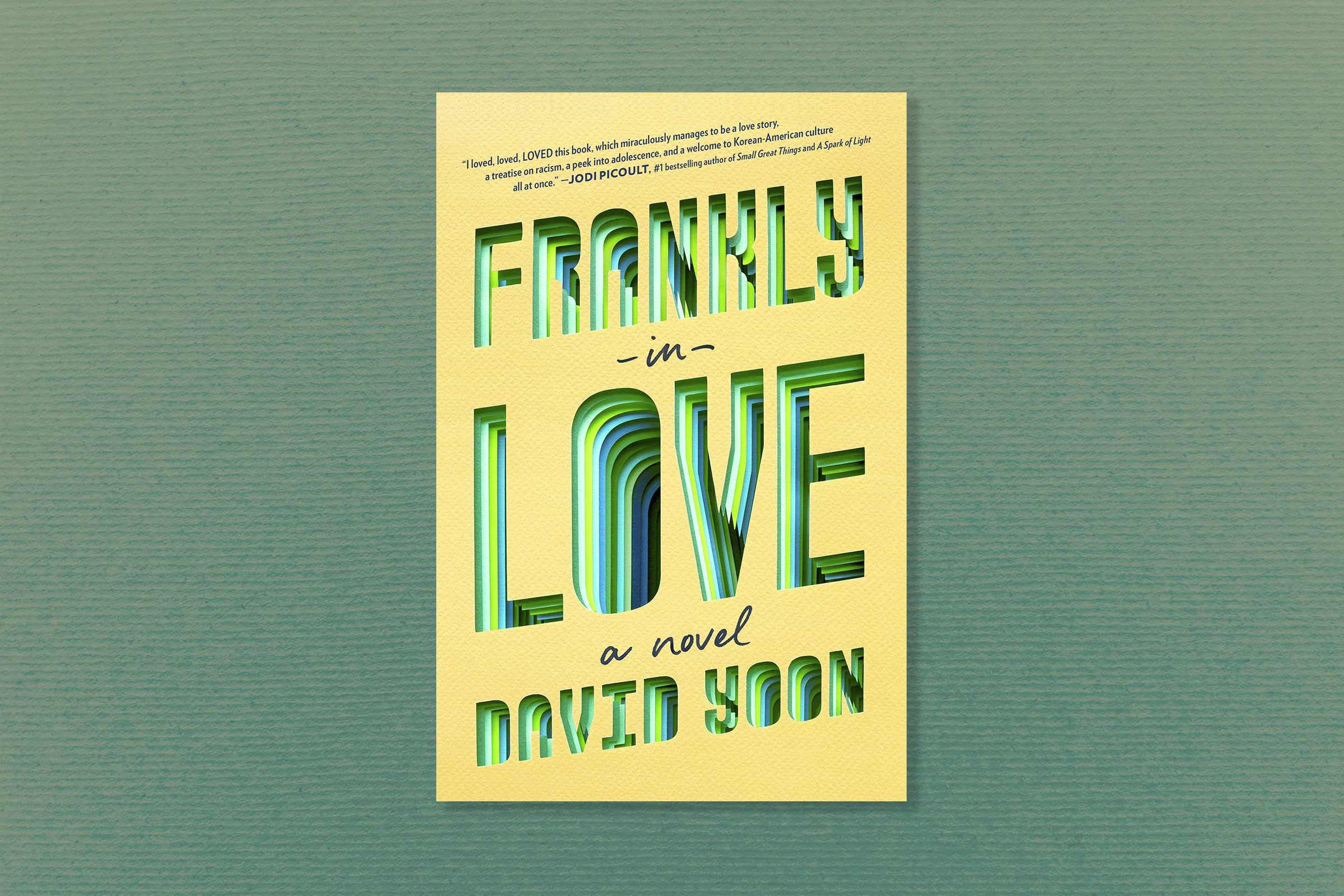
Frank Li, a Korean American teen, has to meet a lot of his parents’ traditional expectations—which include dating a nice Korean girl. But when Frank falls in love with his white classmate, Brit Means, he begins plotting a way to get what he wants while still pleasing his parents. He teams up with Joy Song, a family friend who is dealing with a similar situation in her own home. The two start fake dating to make his parents happy, but the plan soon takes an unexpected turn that forces Frank to question everything he knows. On its surface, Frankly in Love is a coming of age story about a high school romance. But throughout the book you see Frank navigate the culture his parents know and the one he learned being born in America. Yoon unpacks complex ideas about identity, friendship and family expectations that children of immigrants face. — Karena Phan
Buy Now: Frankly in Love on Bookshop | Amazon
Asian American Dreams, Helen Zia
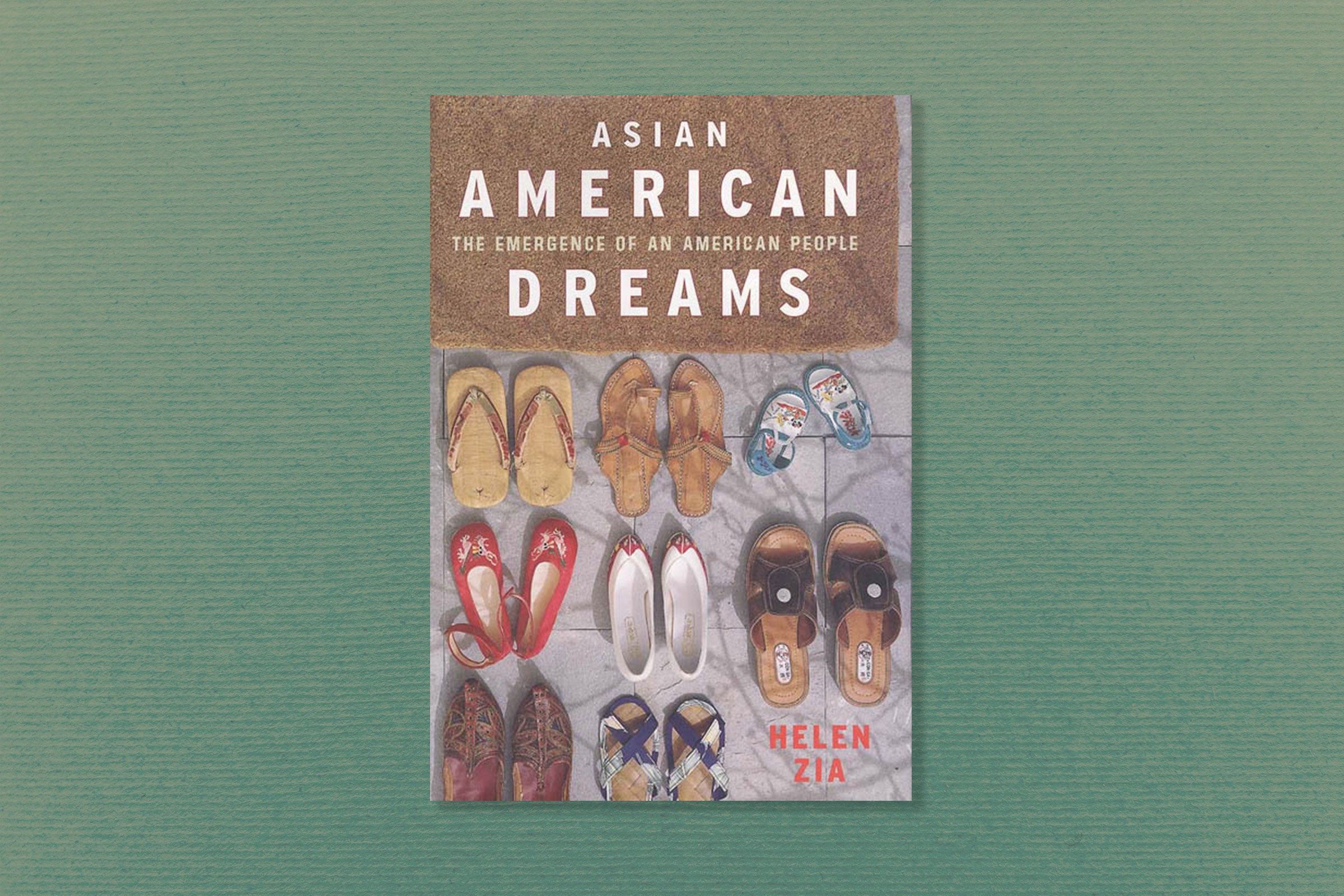
Throughout my life, the history of Asian America was largely supplementary to my education. My mother worked hard to ensure that any gaps (and there were many) in my schooling about the history of Asian Americans in this country were covered. It’s a familiar issue that Helen Zia addresses in Asian American Dreams, where she seeks to tell the stories of the Asian Americans who helped build the country we know, but whose narratives largely are “missing in history.” From documenting the first major wave of Chinese immigrants in the 1850s to bearing witness to the moments that have mobilized the Asian American community, such as the 1982 racially-motivated murder of Vincent Chin that helped solidify Asian Americans’ place in the Civil Rights discourse, Zia shines light on an the untold but important legacy of Asian Americans in American history. — Cady Lang
Buy Now: Asian American Dreams on Bookshop | Amazon
—With reporting by Annabel Gutterman
More Must-Reads from TIME
- Cybersecurity Experts Are Sounding the Alarm on DOGE
- Meet the 2025 Women of the Year
- The Harsh Truth About Disability Inclusion
- Why Do More Young Adults Have Cancer?
- Colman Domingo Leads With Radical Love
- How to Get Better at Doing Things Alone
- Michelle Zauner Stares Down the Darkness
Write to Naina Bajekal at naina.bajekal@time.com and Cady Lang at cady.lang@timemagazine.com